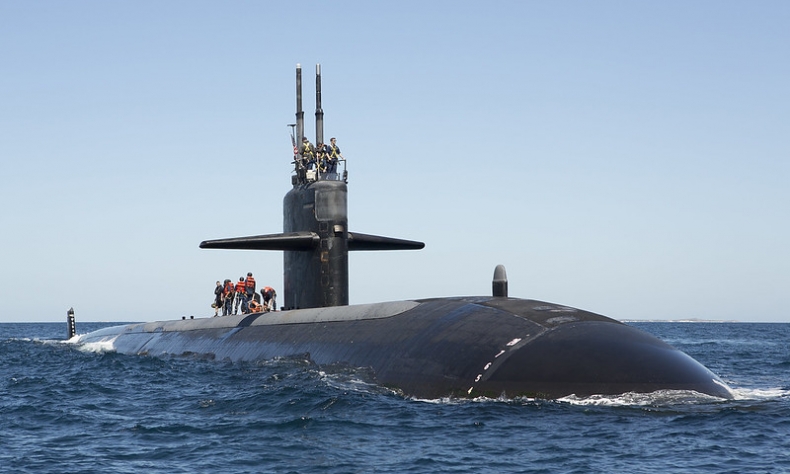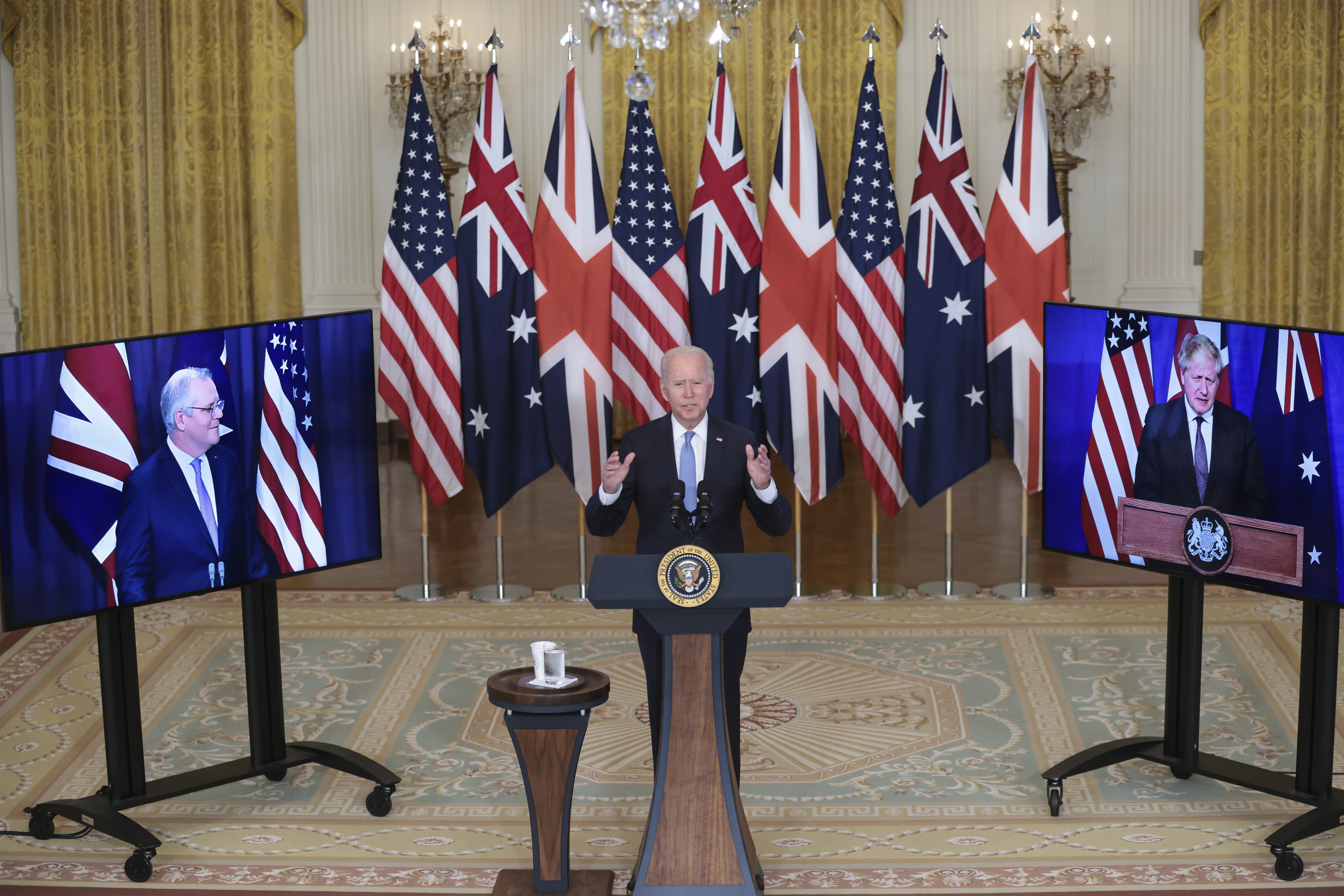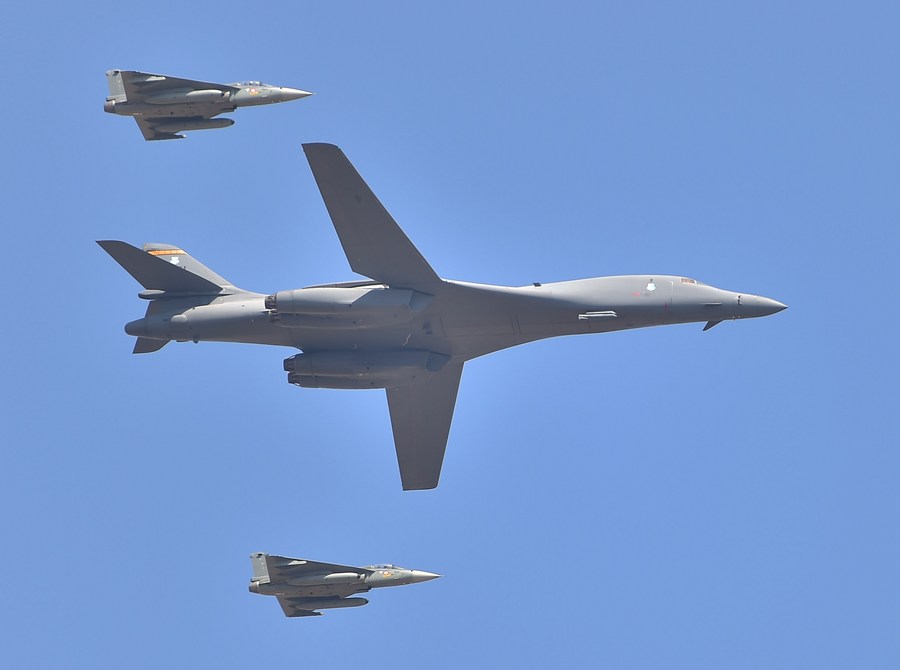The Predicament of AUKUS to Southeast Asian Nations

If a military conflict in the Indo-Pacific were to occur, it would definitely have a devastating effect on all factions, including China and the AUKUS alliance countries.
The leaders of three countries—President Joe Biden of the United States, Prime Minister Boris Johnson of the United Kingdom and Prime Minister Scott Morrison of Australia declared the establishment of a military alliance known as AUKUS—which stands for Australia, UK and U.S.—on September 15. Among the consensus reached within AUKUS is the allocation of nuclear-powered submarine technology from the U.S. to Australia. In addition, AUKUS also covers support in terms of cyber capability, artificial intelligence, quantum technology and underwater aptitude. However, the main focus of this alliance lies on the growth of military proficiency. As a result, Australia will acquire long-range attack capacities for both its air and naval forces.
From the announcement of AUKUS, even though the U.S., the UK and Australia did not mention they would be targeting any country in particular, it became rather obvious that one of the new alliance’s main objectives would be to balance China’s influence in the Indo-Pacific region. Many presume this purpose will see an increase in regional military activity. Depending on which party has majority support, reactions thus far have varied. At the same time, many feel this alliance may lead to a nuclear arms race in the South China Sea. Therefore, it is expected for Association of Southeast Asian Nations (ASEAN) member countries to wonder whether they should have deeper concerns about AUKUS.

The Australian concern
The matter of whether or not AUKUS will allow Australia to have a flotilla of nuclear-powered submarines certainly requires further clarification. For now, Australia has only a fleet of attack-class diesel-powered submarines, equipped with conventional weapons meant for sinking enemy ships during wartime. The difference between nuclear-powered and diesel-powered submarines is that the former is capable of resting on the sea floor for longer periods of time and can cover a wider area. The latter, then, requires intermittent diesel refueling. Apart from attack-class submarines, the ballistic-class sub is capable of carrying nuclear weapons.
While Australia welcomes AUKUS, its residents should also be aware of the long-term implications. To maintain the smooth operating of all atomic-powered submarine fleet, Australia must develop its own nuclear industry. There is no denying that despite Australia’s expertise in this specific field, the country remains limited to medical, economic and energy affairs; it’s lacking the military expertise required to engage in nuclear energy development. In addition to sponsoring atomic energy, one obligatory (radioactive) source substance is that of enriched uranium. The question beckons, to what extent is Australia able to obtain uranium to meet the needs of a military nuclear industry?
For now, the AUKUS coalition has claimed that its members are not in violation of the Treaty on the Non-Proliferation of Nuclear Weapons as it only involves the manufacturing of attack-class nuclear-powered submarines, and that of not nuclear weapons. However, this does not mean that in the future a fleet of nuclear-powered submarines cannot be equipped with an atomically powered arsenal. Moreover, what guarantees do we have that the U.S. and the UK will not use the waters and ports of Australia as a base for their nuclear-armed naval fleets? As such, this exposes Australia to greater risk of military attack, should a war between the U.S. and China erupt. In addition, if this were to happen, Australia would most indeed be at risk of nuclear disaster and accidental damages.

As a result of the AUKUS alliance, Australia is expected to acquire eight nuclear-powered submarines. Yet their effectiveness to realistically balance China’s military strength remains questionable at best. The mere addition of eight submarines will not be impactful for the special military balance in the South China Sea, the Pacific Ocean and the vast Indian Ocean. Consequently, AUKUS is more of a diplomatic strategy that signals the readiness of these three countries to clash with China, in turn dragging the entire Indo-Pacific into a Cold War atmosphere. U.S. leaders have repeatedly stated that the U.S. is not urging any country to choose sides. Reality tells a different story, though.
Furthermore, the AUKUS alliance is part of the U.S. strategy to return to the Indo-Pacific region as exemplified by Biden’s tagline that “America is back.” Building on that notion, the AUKUS announcement date of September 15 was no coincidence. In fact, it was planned as the U.S. only declared it upon withdrawing its troops from Afghanistan. The implication is that at the moment, the main focus of the U.S. no longer lies on Afghanistan or Central and West Asia; it has shifted its attention to the Indo-Pacific region, with an emphasis on China.
Choosing sides
In this scenario, ASEAN member states have a reason to be concerned because indirectly, they are all forced to side with either China or the U.S.
Take Malaysia for example. It is not Malaysia’s wish to bear any hostility toward either China, its largest trading partner, or the U.S., also a major trading partner. Malaysia has always emphasized neutrality, balance and moderation in the implementation of its foreign policy. For that reason, Prime Minister of Malaysia Ismail Sabri Yaakob has urged all parties involved to avoid any form of provocation. While Defense Minister Hishammuddin Tun Hussein visited China to discuss the matter, Foreign Minister Saifuddin Abdullah held discussions with diplomats from the AUKUS alliance. It must be stressed that all parties comply with International Law such as the 1982 United Nations Convention on the Law of the Sea, and ASEAN’s Southeast Asia Nuclear Weapons Free Zone Treaty.

At the same time, various Southeast Asian nations have been embroiled in the AUKUS issue. Indonesia and Malaysia have both expressed their concerns over the implications of AUKUS for regional security and stability. Indonesia, for one, is worried about the materialization of an arms race; other Southeast Asian countries find themselves wedged in between Australia and China. Meanwhile, Singaporean Prime Minister Lee Hsien Loong hoped that AUKUS would help enhance peace and stability, all the while complementing the existing regional architecture. On the other hand, Philippine National Defense Secretary Delfin Lorenzana contacted Australian Defense Minister Peter Dutton to support Australia’s right to enhance its submarine defense capabilities and expressed that the Philippines, too, had been developing further defensive capabilities. Nevertheless, Lorenzana did underscore the fact that the Philippines aim to maintain solid bilateral defense relations with all Southeast Asian countries.
Of far greater concern is that we are not just talking about a possible “conventional” arms race, but one that will involve nuclear-powered equipment. No matter what assurance the U.S. gives, this nuclear-powered arms race will certainly wield a detrimental influence over the regional stability. The world ever frets about history repeating itself; here, we can foresee the potential reemergence of a pre-World War I situation in which alliances like the Triple Alliance and Triple Entente were formed to offset each other’s military powers. This alliance subsequently left the international system teetering on the brink of instability, eventually resulting in a full-blown war.
If a military conflict in the Indo-Pacific were to occur, it would definitely have a devastating effect on all factions, including China and the AUKUS alliance countries. It is imperative we learn from history—yet, unfortunately, what we have learned from history thus far is that we have never learned from history.
The author is a senior lecturer at the Department of International and Strategic Studies at the University of Malaya.
 Facebook
Facebook
 Twitter
Twitter
 Linkedin
Linkedin
 Google +
Google +










